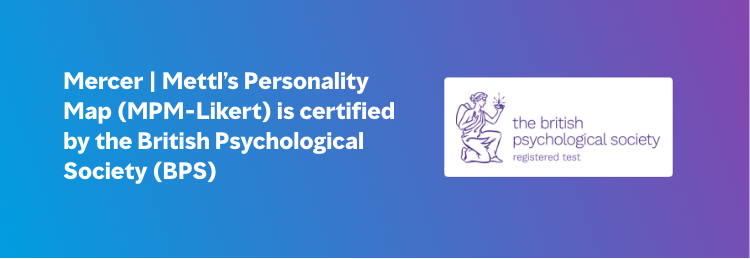Organizational planning, consisting of high-potential identification, leading to leadership development and succession planning, is a pressing concern for many organizations. The use of psychometric tests in organizational planning has witnessed a surge. This is because organizations realize the importance of assessing the fitment of future leaders, leadership orientation, strategic thinking, decision-making, initiative-taking, adaptability, stakeholder management and other important competencies.
Employees need to be assessed on a future competency framework for potential succession. The competencies need to look beyond hands-on domain knowledge and skills. The use of psychometric tests ensures that an employee is holistically evaluated on present and future competencies.
The importance of psychometric tests also extends to fiscal benefits. The use of psychometric tests to identify behavioral traits indicative of leadership potential positively impacts performance management, ensuring strategic positions remain occupied with competent performers. This negates the cost and time on external recruitment and training, statistically more expensive than internal promotions.
Effective organizational planning can enable an organization to navigate a challenging business environment. In situations where requirements and roles are sharply defined, the use of psychometric tests helps identify an employee’s future potential in the role. It provides advantages in objective information on employee effectiveness, behavioral competencies suited to the organizational ecosystem and leadership stage compatibility.
Note:
In 2000, after having helmed Microsoft for nearly 25 years, Bill Gates stepped his title as CEO down to Steve Ballmer. The latter went on to lead Microsoft for the next 14 years, tripling sales to $78 billion and more than doubling profits from $9 billion to $22 billion. In fact, Kinect and Xbox launched under his supervision; as did the acquisition of Skype and Yammer.
Measuring merely quarter-on-quarter growth, Balmer was among the best CEOs the world had ever seen. But in terms of long term survival, you could argue that Ballmer failed. On investigation, it’s easy enough to find that through Microsoft’s remarkable financial performance in 14 years, its leadership failed to execute on the five important technology trends of the 21st century.

While the company left the 20th century owning more than 95% of the operating systems that ran on computers – almost every desktop – its mobile OS share borders on an abysmal 0.1%. It is speculated that Ballmer failed because the CEO was a world-class executor of an existing business model, but not a world-class innovators.
Others identify with Satya Nadella, the man who succeeded Ballmer in 2014. He roped Microsoft around mobile and cloud, freed the Azure and Office teams from Windows, released a new version of Windows and killed the phone business. Nadella likely saved his company from irrelevance.
It was more appropriate for the story to precede the concept when it came to psychometric tests and its use in succession planning. Quality employees are not cut from the same cloth, and it shows from the Ballmer example. Did he possess critical competencies to Microsoft success? Yes. Did he have them all? No.









 Behavioral Competencies
Behavioral Competencies Cognitive Competencies
Cognitive Competencies Coding Competencies
Coding Competencies Domain Competencies
Domain Competencies

































Would you like to comment?